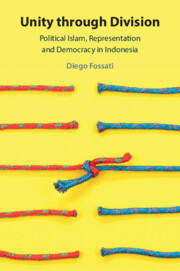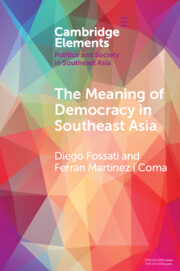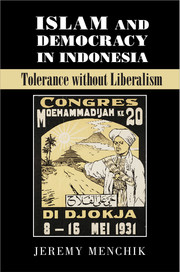Unity through Division
Indonesia, like many other countries around the world, is currently experiencing the process of democratic backsliding, marked by a toxic mix of religious sectarianism, polarization, and executive overreach. Despite this trend, Indonesians have become more, rather than less, satisfied with their country's democratic practice. What accounts for this puzzle? Unity Through Division examines an overlooked aspect of democracy in Indonesia: political representation. In this country, an ideological cleavage between pluralism and Islamism has long characterized political competition. This cleavage, while divisive, has been a strength of Indonesia's democracy, giving meaning to political participation and allowing a degree of representation not often observed in young democracies. While the recent resurgence of radical Islam and political polarization in Indonesian politics may have contributed to democratic erosion, these factors have simultaneously clarified political alternatives and improved perceptions of representation, in turn bolstering democratic participation and satisfaction. This compelling book effectively challenges the wisdom of the role of Islam in Indonesian political life and provides a fresh analysis for debates on democratic backsliding in Indonesia and beyond.
- Studies democratic legitimacy based on an analysis of political representation
- Uses up-to date empirical evidence and rigorous methods to provide a novel perspective on the state of democracy in Indonesia
- Provides a wide range of quantitative data, including electoral returns from twenty years of elections and original surveys and survey experiments, conducted both online and face-to-face from 2017 to 2019
Reviews & endorsements
'Fossati designed a series of surveys to find out why the rise of political Islam after Indonesia’s democratic transition in 1998 has not destabilized the country’s politics. Patronage relations play a big role in elections, as do economic issues, but he finds that religious affiliations are a major determinant of how people vote.' Andrew J. Nathan , Foreign Affairs
Product details
April 2024Paperback
9781009203067
241 pages
230 × 150 × 15 mm
0.374kg
Available
Table of Contents
- 1. Introduction
- 2. Explaining democratic survival in Indonesia
- 3. The ideological roots of electoral politics
- 4. Political elites and ideological competition
- 5. Public opinion on political Islam
- 6. Ideological representation
- 7. Meaning and evaluation of democracy
- 8. Conclusion.








